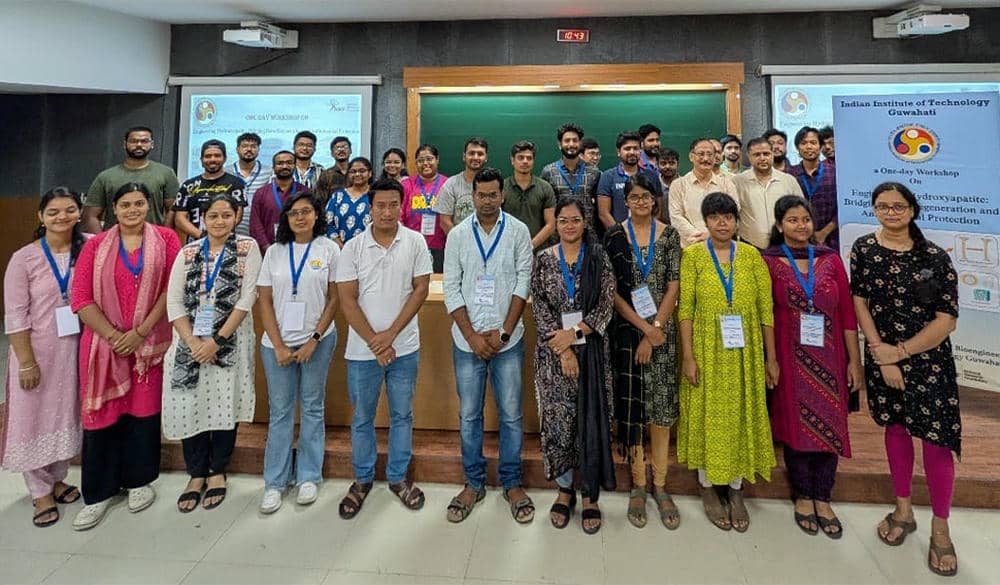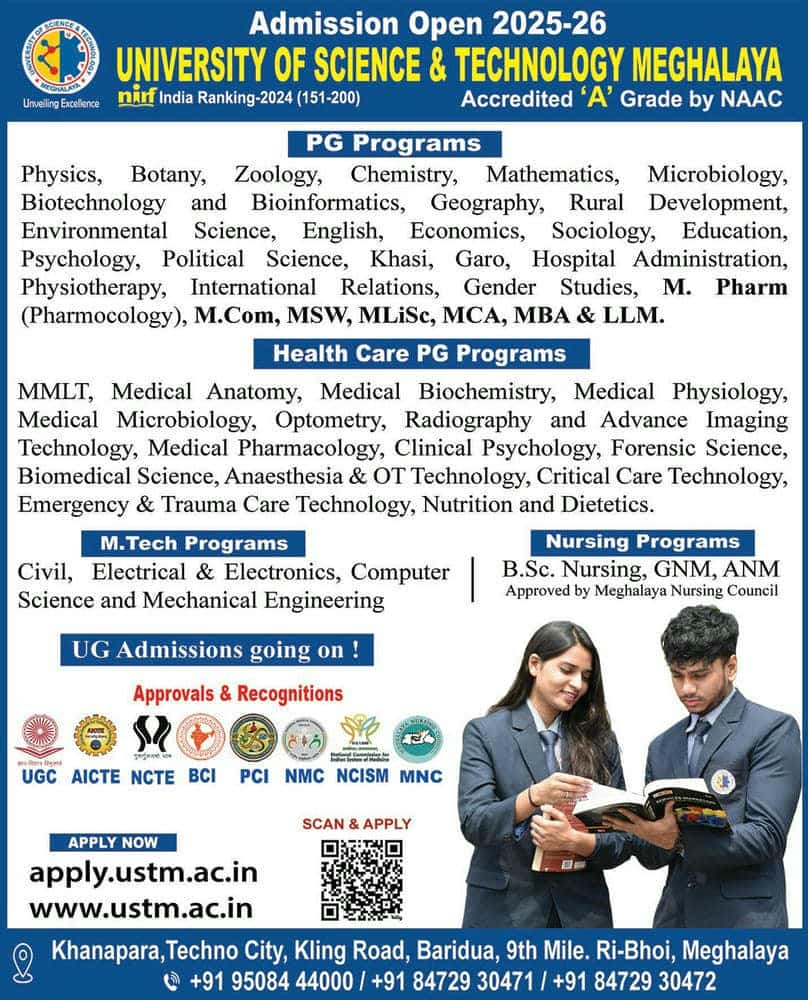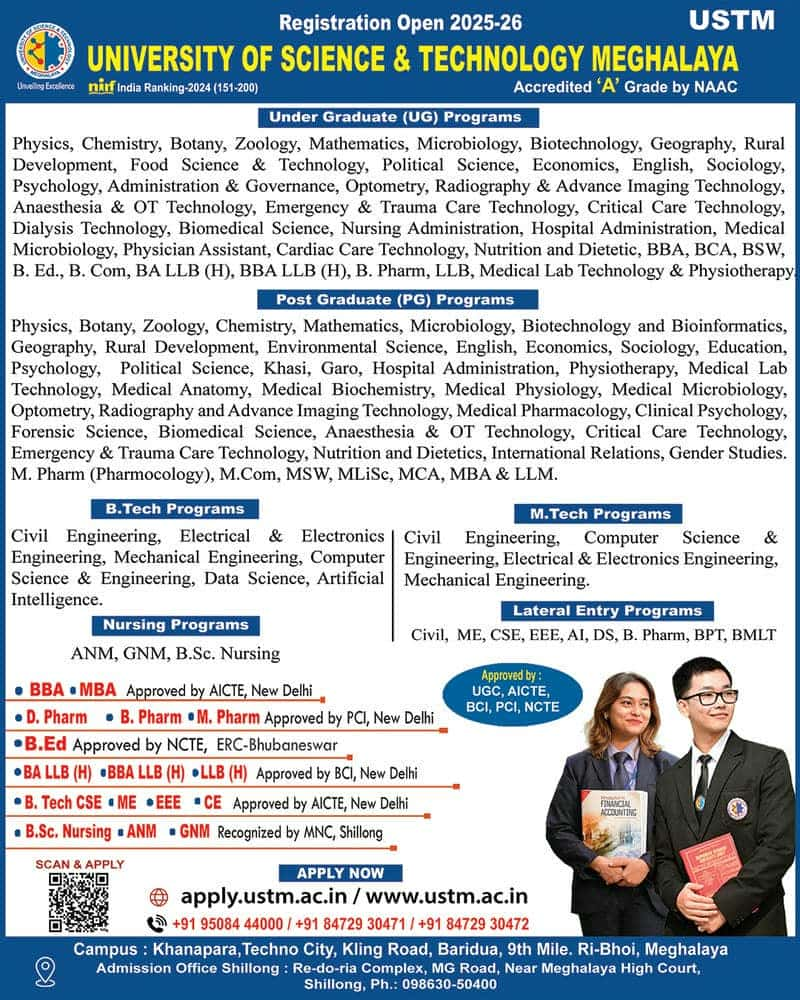IIT Guwahati leads the charge against bone infections with breakthroughs in engineered hydroxyapatite

The Indian Institute of Technology Guwahati on Saturday hosted a one-day national workshop titled “Engineered Hydroxyapatite: Bridging Bone Regeneration and Antimicrobial Protection”, supported by the Science and Engineering Research Board (SERB) under the ANRF scheme. The workshop focused on the biomedical potential of engineered hydroxyapatite (HAp), a biocompatible calcium phosphate compound known for its similarity to human bone, and its applications in tackling osteomyelitis and antibiotic resistance.
The event was organised by the Department of Biosciences and Bioengineering at IIT Guwahati to disseminate knowledge related to the SERB-sponsored research project, “Development of Fe and Zn co-doped Hydroxyapatite for the Treatment of Osteomyelitis.”
The workshop was chaired by Professor Utpal Bora, Head of the Department of Biosciences and Bioengineering. In his opening remarks, Professor Bora highlighted the importance of developing translational biomedical solutions that can address chronic bone infections while supporting tissue regeneration. The event was convened by Professor Lalit M. Pandey, who outlined the scientific objectives of the workshop and spoke about the bottom-up approach to synthesising hydroxyapatite-based nanomaterials. He emphasised how fine-tuning the structure at the nanoscale can lead to major enhancements in the antimicrobial and mechanical properties of the biomaterial.
The technical sessions featured presentations by experts, including Professor D. Pamu of IIT Guwahati, Dr. Apurba Das of Handique Girls’ College, Professor Devasish Chowdhury of IASST Guwahati, and Dr. Lalit M. Pandey of IIT Guwahati. The speakers addressed diverse topics such as hydroxyapatite synthesis techniques, surface coating technologies, nanocomposite development, and advanced material characterisation. The sessions drew attention to current innovations in using HAp not only for orthopaedic applications like bone grafts and implants, but also in drug delivery, biosensors, and antimicrobial therapies.
One of the main highlights of the workshop was the hands-on training session, which drew participation from over 50 students and researchers from across Northeast India. Participants received practical training in nano-HAp synthesis, processing, and analysis using laboratory-based tools. The session aimed to enhance skills in developing bioengineered materials that are structurally stable while offering enhanced clinical functionality.
The workshop concluded with a discussion on the interdisciplinary potential of hydroxyapatite and the scientific challenges of incorporating additional functionalities such as photothermal therapy and environmental remediation into the HAp matrix without compromising its biological performance. The event ended with a vote of thanks, reinforcing IIT Guwahati’s growing role as a hub for advanced biomedical research in the region.





Leave a Reply